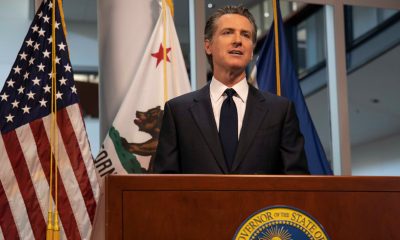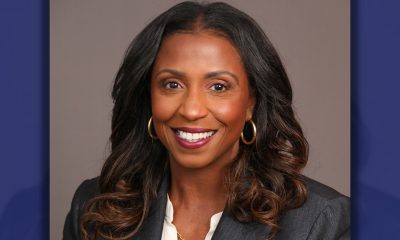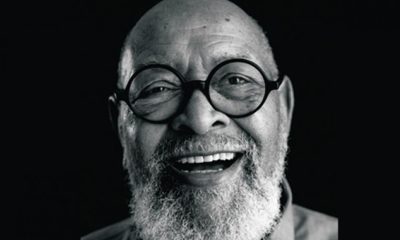#NNPA BlackPress
NFL drafts 1 HBCU player — There should’ve been more?
Doug Williams was drafted by the Tampa Bay Buccaneers in 1978, making him the first Black quarterback picked in the first round of the NFL draft. Williams was selected from a historically Black college. During that era, bigotry made Black quarterbacks uncommon. However, drafting Black players from HBCUs was commonplace. American society was slowly integrating, […]
The post NFL drafts 1 HBCU player — There should’ve been more? first appeared on BlackPressUSA.

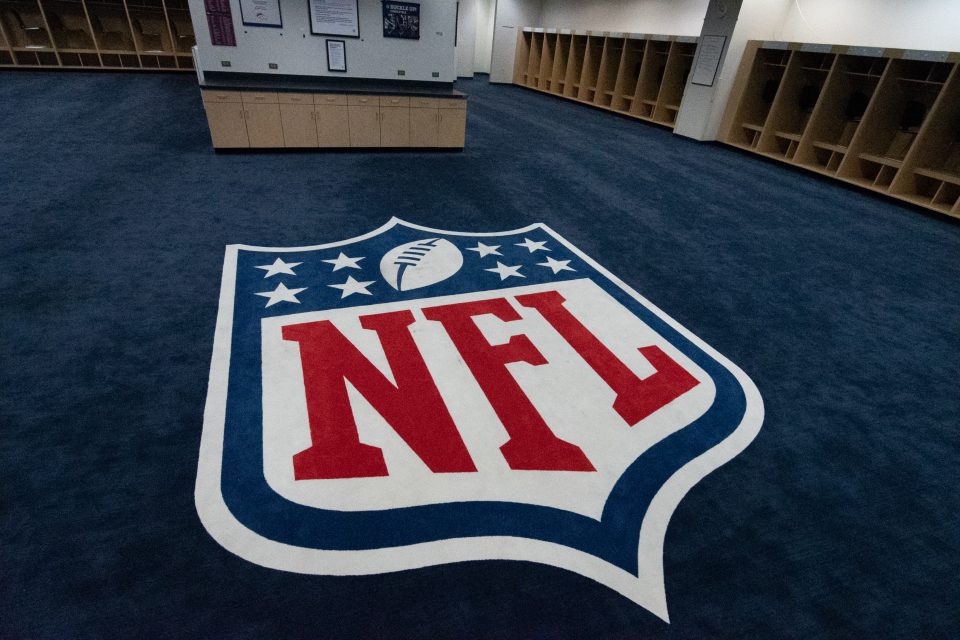
Doug Williams was drafted by the Tampa Bay Buccaneers in 1978, making him the first Black quarterback picked in the first round of the NFL draft. Williams was selected from a historically Black college.
During that era, bigotry made Black quarterbacks uncommon. However, drafting Black players from HBCUs was commonplace. American society was slowly integrating, but racial separation was still ingrained. That meant there was an abundance of talent to be found at HBCUs.
During the 1970s, the NFL drafted 318 players from HBCUs.
In the 1980s, Black quarterbacks were still rare, but the few that were drafted came from predominately White Division I schools, instead of HBCUs. After the turn of the century, Black quarterbacks were routinely drafted from predominately White Division I schools, becoming the stars of the NFL.
In 2023, two Black quarterbacks, Jalen Hurts and Lamar Jackson, signed contracts that made them the highest-paid players in NFL history, and three Black quarterbacks were among the top five selections in the first round of the NFL draft.
As the NFL will compensate and draft the finest players, these outcomes were expected. On the other hand, Doug Williams found a reason to complain.
Only one player from an HBCU was drafted by an NFL team in 2023.
Williams believed that at least seven players from HBCUs should have been drafted and stated, “There must be a lack of representation in the draft rooms for this to happen. Do we have anyone fighting for these young men?”
It’s understandable for Williams to have high aspirations for HBCU players, but the odds are stacked against them, not because of a lack of representation in the draft rooms; it all comes down to talent tiers.
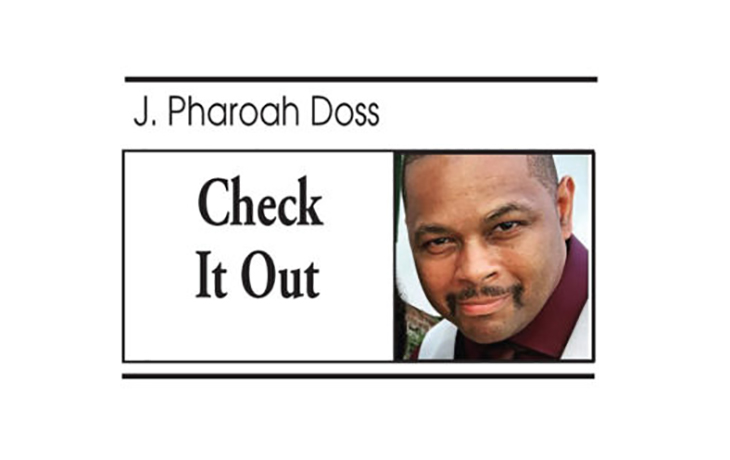
The top talent tier in the NCAA is Division I, which is divided into the FBS (televised teams) and the FCS (non-televised teams). There are also NCAA divisions II and III, but it is extremely uncommon for NFL teams to draft players from these lower talent tiers. According to the NCAA, there are 363 division one schools, 313 division two schools, and 442 division three schools. Most schools belong to a conference, but there are power conferences and non-power conferences.
In 2023, the NFL drafted players from 95 schools.
There were 259 total players selected. 206 players came from the power conferences in the FBS (televised teams), and 34 players came from the non-power conferences in the FBS (televised teams), totaling 240 players from the highest talent tier.
That’s almost the entire draft.
If only 34 players were drafted from the non-power conferences of the FBS (televised teams), how many would be drafted from the FCS (non-televised teams), which is a talent tier dramatically below? The strongest conferences in the FCS (non-televised teams) will only produce one or two NFL draft picks per year, if any at all.
That begs the question: in which talent tier are the HBCUs?
The majority of HBCUs belong to four conferences. Two of these conferences (CIAA and SIAC) compete in Division II of the NCAA. This effectively eliminates them from the NFL draft. The other two (SWAC and MEAC) compete in the FCS (non-televised teams). One conference (SWAC) had a player drafted, while the other did not.
However, seven other conferences in the FCS (non-televised teams) only had one player drafted in 2023, while none were drafted from the remaining six conferences. No one complained because that’s what’s expected from a lower talent tier.
There’s one additional factor: the Pittsburgh Steelers selected Joe Gilliam from an HBCU in the eleventh round of the 1972 draft. That year, the NFL draft had 17 rounds.
Today, the NFL draft only has seven.
There were 26 NFL teams in 1972. With an additional 10 rounds, 260 more players had the opportunity to be drafted. During the 1970s, a lot of HBCU players were drafted in rounds that no longer exist today. Doug Williams remembers when HBCUs were elite, but now they’re no longer in the top talent tier. Williams can’t face that fact. So, he imagines that the problem must be that there’s no one fighting for HBCUs in the draft rooms.
But there is no problem.
No one fights for the Ivy League, either.
The post NFL drafts 1 HBCU player — There should’ve been more? appeared first on Atlanta Daily World.
The post NFL drafts 1 HBCU player — There should’ve been more? first appeared on BlackPressUSA.
#NNPA BlackPress
LIVE! — ASK ALMA — TUES. 5.30.23 7PM EST
This week, guest host Leah Farmer King and her panel share tips and advice to reader mail. Leah and the panel, along with the …
The post LIVE! — ASK ALMA — TUES. 5.30.23 7PM EST first appeared on BlackPressUSA.

This week, guest host Leah Farmer King and her panel share tips and advice to reader mail. Leah and the panel, along with the …
The post LIVE! — ASK ALMA — TUES. 5.30.23 7PM EST first appeared on BlackPressUSA.
#NNPA BlackPress
LIVE! — ASK ALMA! — TUES. 1.9.24 7 PM EST
HAPPY NEW YEAR! Welcome back for our first show of the year! This week, Alma and her panel answer viewer mail. As always …
The post LIVE! — ASK ALMA! — TUES. 1.9.24 7 PM EST first appeared on BlackPressUSA.
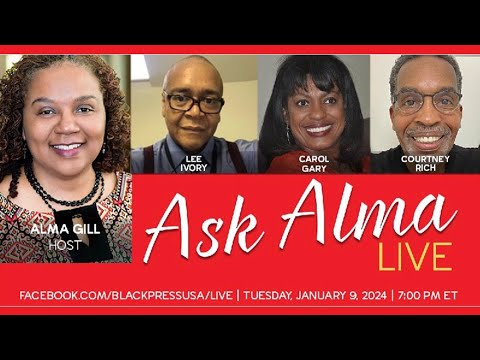
HAPPY NEW YEAR! Welcome back for our first show of the year! This week, Alma and her panel answer viewer mail. As always …
The post LIVE! — ASK ALMA! — TUES. 1.9.24 7 PM EST first appeared on BlackPressUSA.
#NNPA BlackPress
LIVE! — ASK ALMA! — TUES. 1.30.24 7PM EST
Think you’re the only one with problems? Each week, NNPA advice columnist Alma Gill, along with her panel of guest advisors …
The post LIVE! — ASK ALMA! — TUES. 1.30.24 7PM EST first appeared on BlackPressUSA.

Think you’re the only one with problems? Each week, NNPA advice columnist Alma Gill, along with her panel of guest advisors …
The post LIVE! — ASK ALMA! — TUES. 1.30.24 7PM EST first appeared on BlackPressUSA.
-

 Community2 weeks ago
Community2 weeks agoFinancial Assistance Bill for Descendants of Enslaved Persons to Help Them Purchase, Own, or Maintain a Home
-

 Activism4 weeks ago
Activism4 weeks agoOakland Post: Week of April 3 – 6, 2024
-

 Business2 weeks ago
Business2 weeks agoV.P. Kamala Harris: Americans With Criminal Records Will Soon Be Eligible for SBA Loans
-

 Activism3 weeks ago
Activism3 weeks agoOakland Post: Week of April 10 – 16, 2024
-

 Community2 weeks ago
Community2 weeks agoAG Bonta Says Oakland School Leaders Should Comply with State Laws to Avoid ‘Disparate Harm’ When Closing or Merging Schools
-

 Community2 weeks ago
Community2 weeks agoOakland WNBA Player to be Inducted Into Hall of Fame
-

 Community2 weeks ago
Community2 weeks agoRichmond Nonprofit Helps Ex-Felons Get Back on Their Feet
-

 Community2 weeks ago
Community2 weeks agoRPAL to Rename Technology Center for Retired Police Captain Arthur Lee Johnson

